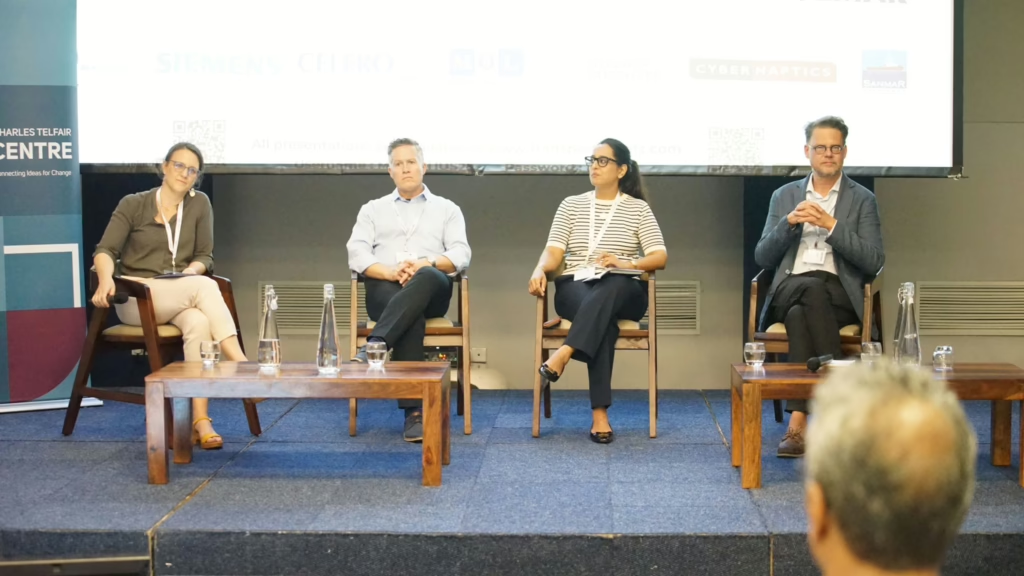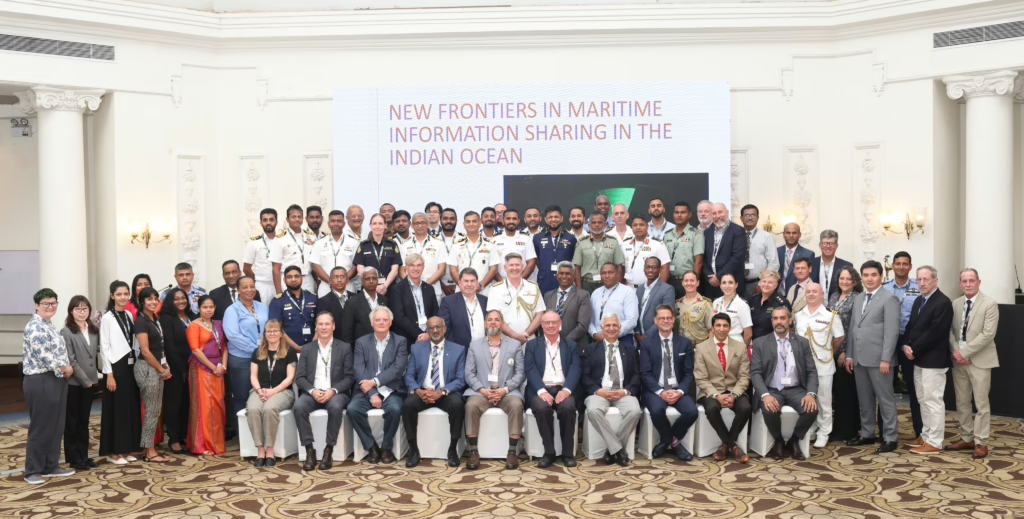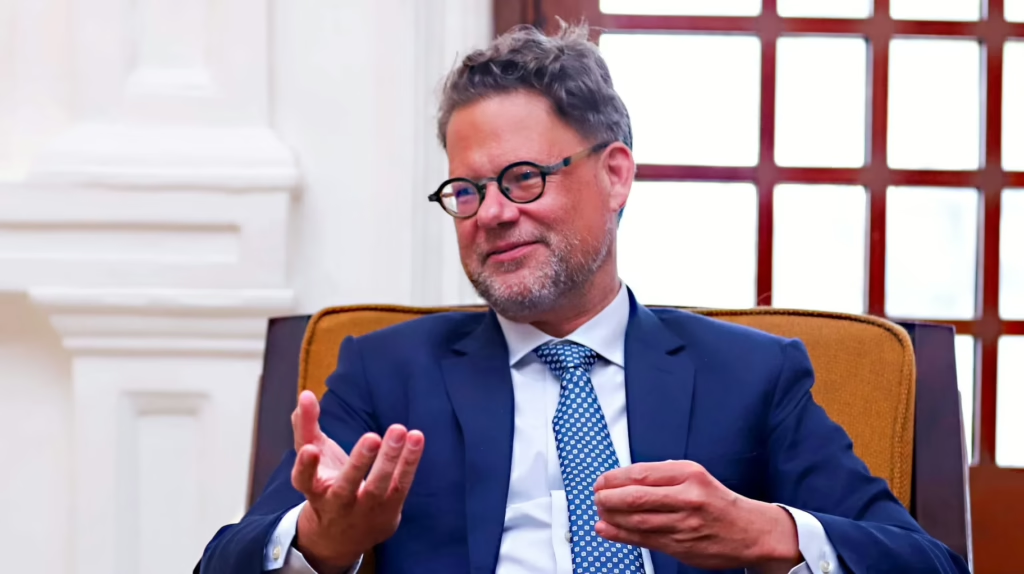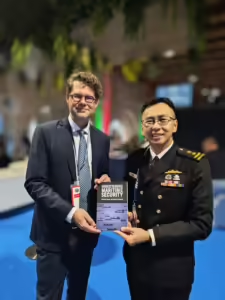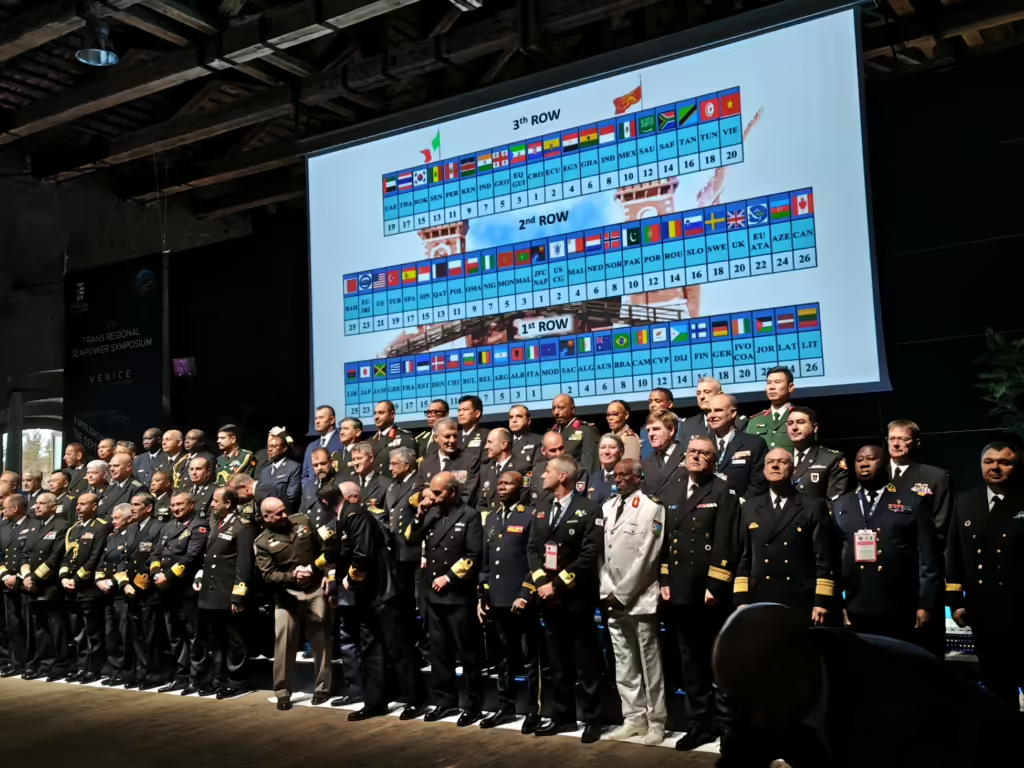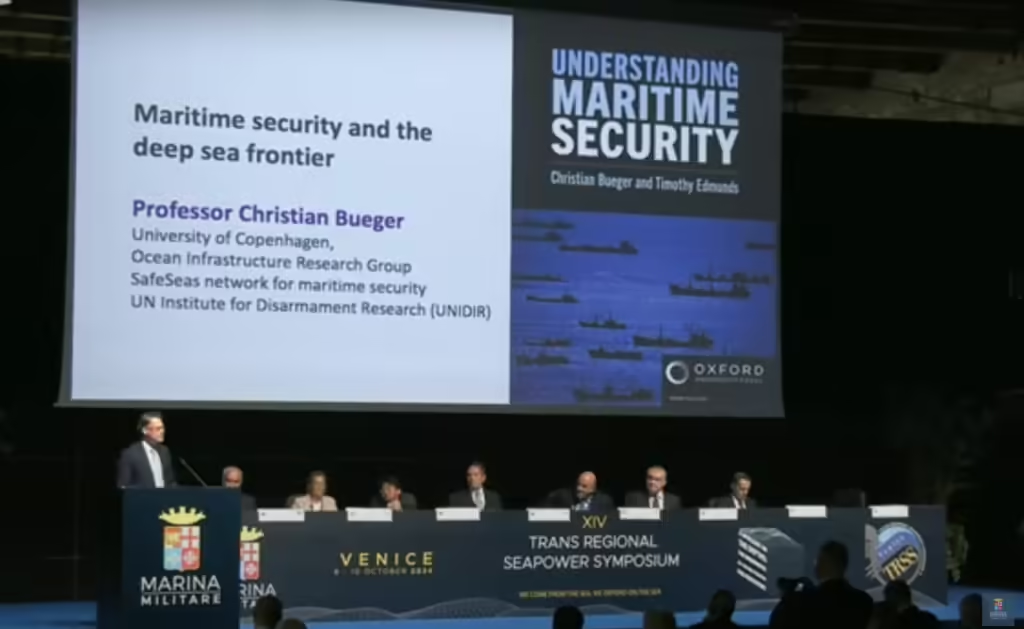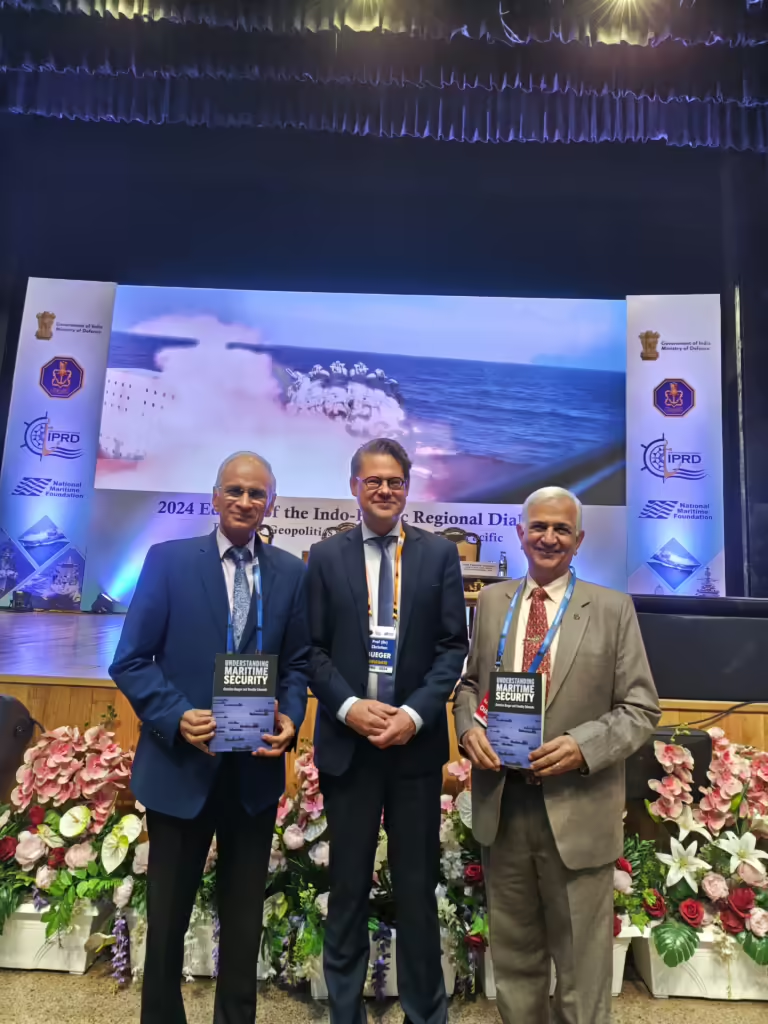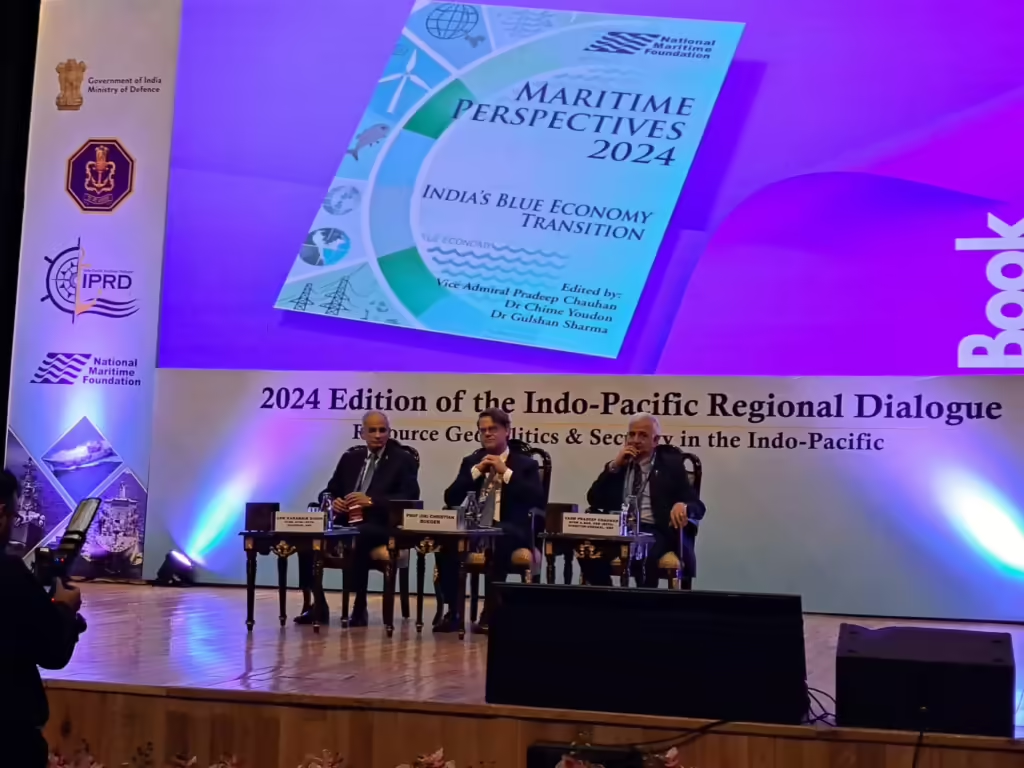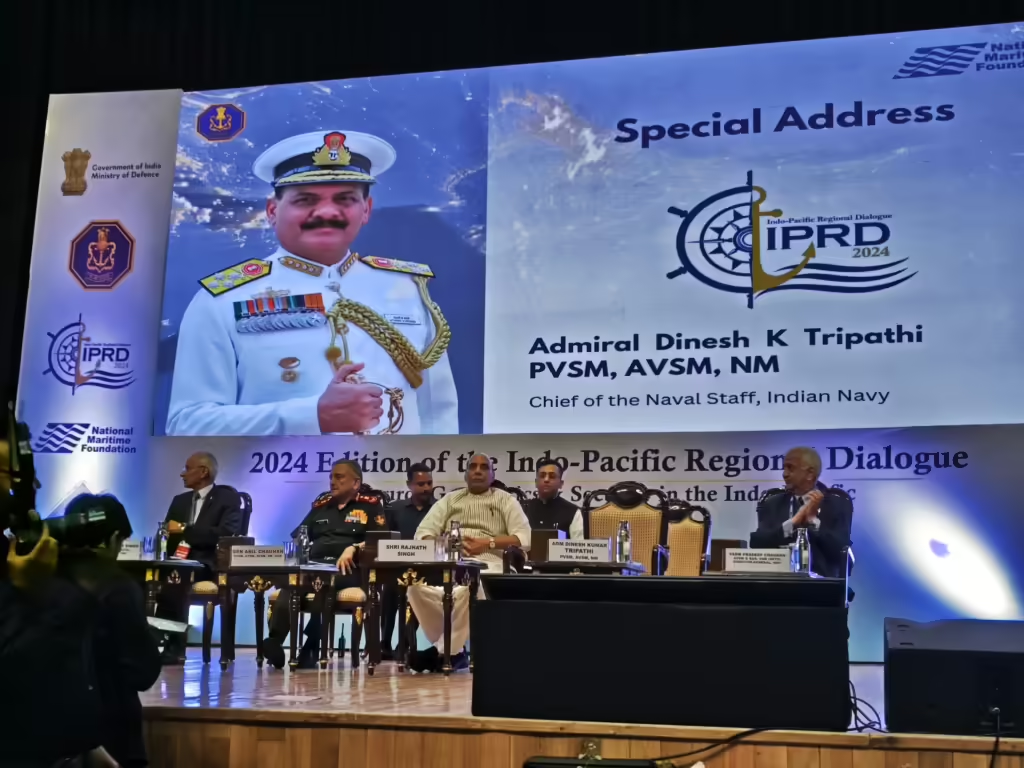Navies from the Indian Ocean region and beyond have a new maritime security forum: the Aman Dialogue. Linked to the bi-annual naval exercise Aman (Peace) by the Pakistani Navy, the new format continues the earlier maritime security conference held in Karachi with an extended scope.
At the 2025 inaugural edition, which I had the pleasure to attend, representatives of 60 states, including many European, African and even South Pacific nations met to discuss the future of maritime security. The Aman dialogue is an important forum for naval diplomacy, and agreeing on common understandings of the challenges at sea and how to respond to them.
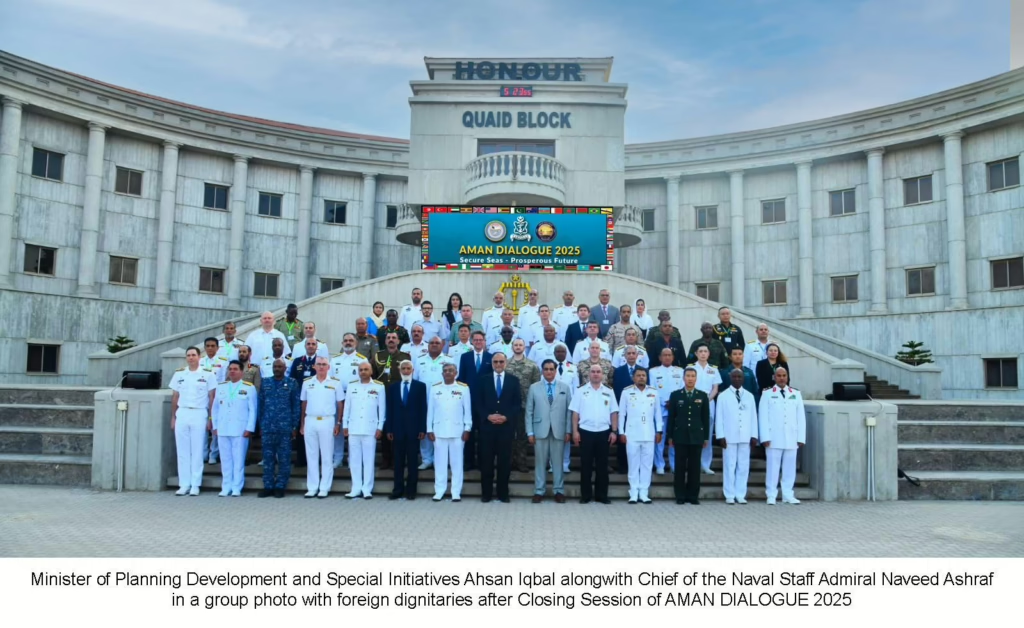
What makes this forum truly remarkable is its ability to bring together diverse naval powers – including China, NATO member states, the United States, Iran, and Russia – all under one roof.
I had the pleasure to intervene with two talks at the event. I introduced the key insights of our recent UNIDIR report. Maritime security governance is in need of recalibration and better global strategy is needed. Mega trends, such as automation, digitalization, climate change, and the proliferation of new technologies also lead to new pressing challenges, such as maritime cyber security. In particular, small and developing state need assistance to cope with them.
As part of the closing session I argued for the importance of recognizing that maritime security means that there is a global responsibility to protect the oceans and maritime activities.
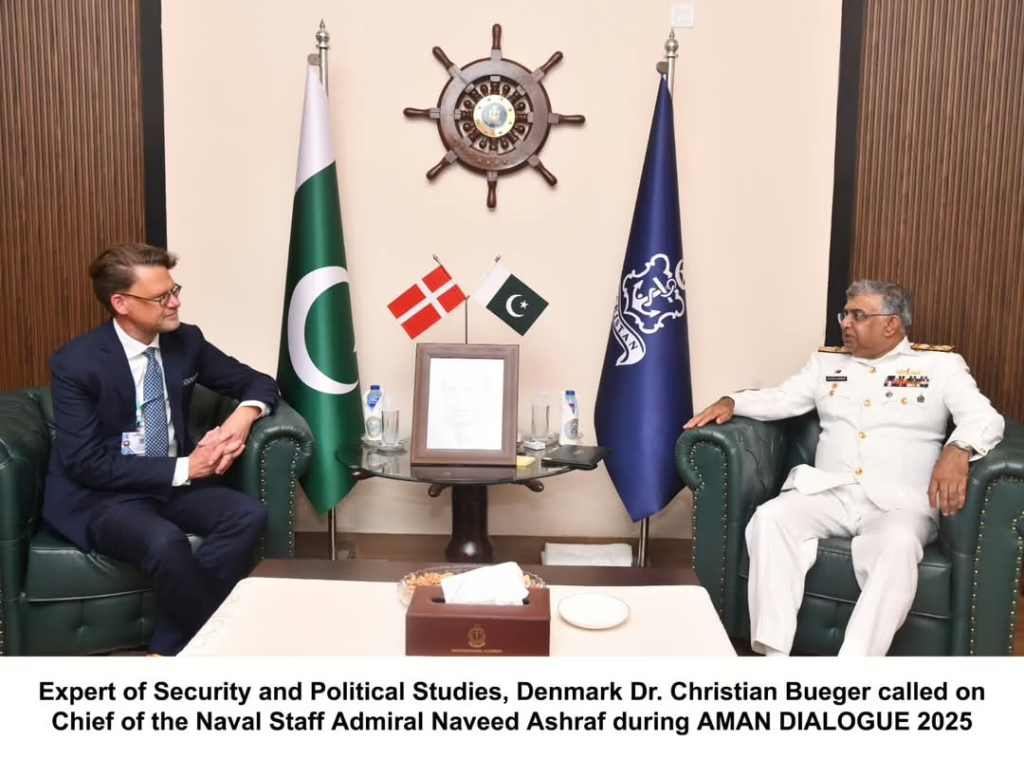
It was wonderful to engage with naval professionals from around the world and enjoy the hospitality of the Pakistani navy and its think tank – the National Institute for Maritime Affairs (NIMA).
The proceedings of the event are available on Youtube (day 1; day 2). A summary of my talk was published by Defence Web.
